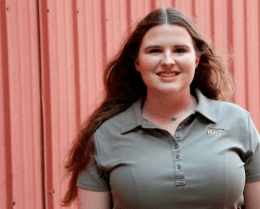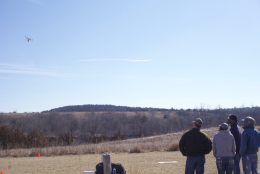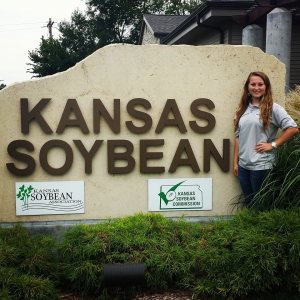
This school year, I started a whole new job- I was the communications intern for Kansas Wheat. This job was way different than any of my other jobs. This was my first office job. I heard about this job by word-of-mouth from one of my friends. Other students can apply for this internship by filling out the application, emailing their resume and cover letter to Jordan Hildebrand.
Kansas Wheat Commission has the checkoff program, and two cents from every bushel of wheat sold goes into this program. This funds efforts for communication and lobbying on behalf of the farmer. It is the job of the Kansas Wheat Commission to give a voice to the Kansas wheat farmers.
My job as intern was to report to Jordan Hildebrand and Marsha Boswell. They were great to work for. They wanted to see the interns excel and were willing to help in any way they could. We were in the same building as the Kansas Foundation for Agriculture in the Classroom which meant more people who could help if I had a question about different programs and ideas.
Coming into this internship, I swore I was not interested in writing. I did not want to be a writer. I was more interested in doing social media, graphic design, and video work. After creating social media content for a few months though, I found that it was not really my forte. I enjoyed seeing my posts getting attention, likes and shares and being creative and quirky was up my alley. On the other hand, we were trying so hard to build a lot of content that many posts were unnecessary. They noticed I was getting bored with content creation, so they let the other intern be in charge of that task. Without having to do the social media content, I was free to work on various writing assignments.
My three favorite writing assignments were “What is Hopping with Wheat Beer”, “Norman Borlaug” and “Heritage versus Modern Wheat”. This gave me a chance to learn more about the science behind beer, what makes a wheat beer, and if wheat would affect flavor, color, or body of the beer. It was a chance for me to learn more about chemical processes behind beer creation and it debunked many previous notions I had about wheat beer! I got to really dive head first and find out about the life and times of Norman Borlaug. As for the heritage versus modern wheat article, I got to learn more about what it is and the differences are. I did not realize how much I love and miss writing. I was really proud of the stories I wrote and submitted. This has given me some direction for what I want to go into after graduation.
The best day at work though was easily the day when I got to take pictures in the greenhouse. I took my personal camera and I went crazy! I took so many pictures of the wheat in different stages of growth. It was fun getting to shoot in a variety of lighting all in one swoop!
Overall, this internship was excellent and I had a great time. I would highly recommend it to anyone who is a little bit unsure what direction they want to take with their degree. It was easily one of the best jobs I have ever had. I cannot wait to continue with them next year.




